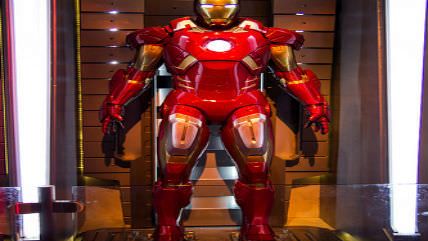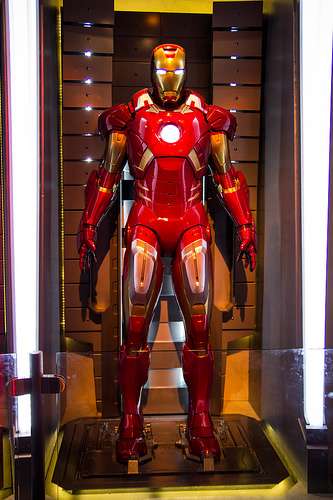Cool Sci-Fi Future Is Nigh: Dad Builds Son 3-D Printed Prosthetic Hand for $10

Shirking $30,000 in medical fees for a traditional prosthetic hand, videographer Paul McCarthy built a multi-colored "Robohand" for his son using a friend's 3-D printer. McCarthy says he spent, "Five, maybe, ten bucks."

The boy, 12-year-old Leon McCarthy, was born without fingers on his left hand. Once he turned ten, Paul started searching for an inexpensive and functional prosthetic alternative.
What he found changed his son's life. A YouTube video by Washington-based special effects artist and puppeteer, Ivan Owen, shows the results of the artist's collaborative effort to build a Robohand for a disabled boy in South Africa. Like McCarthy, Owen was not an engineer, computer scientist, or doctor. However, he was passionate about helping to develop affordable, DIY prosthetics. In an interview with CBS News, Owen said:
I've always had this vision of people being able to build their own prosthetic device at home.
To help him accomplish this goal, MakerBot, a firm that produces 3-D printing equipment, offered Owen and his South African design partner, Richard Van As, free printers. From there, Owen and Van As honed the Robohand and posted the design and instructions for free download on Thingiverse, a website for sharing digital designs.
According to NPR, once the McCarthy's discovered Owens' video and the Robohand instructions, they decided to make one for Leon:
Printing the parts (using a friend's borrowed 3-D printer) was easy, the two say. But it took them a month to figure out how to string, screw and bolt together what they describe as the "Frankenstein" version. It's still a work in progress, they say, but several weeks ago, Leon wore it to school for a tryout.
"I'm able to hold a pencil and piece of paper," Leon says. "I've done a lot more than I ever thought I could, so it's opened up a lot of new doors in my life."
Van As is now raising money through a crowdfunding site to build more Robohands for disabled children at no cost to their families. In the meantime, the latest version of Robohand is available for free download – and the materials cost just $5.
While many are lauding these developments as an awesome way to revolutionize healthcare and DIY projects, some are concerned that lobbyists and politicians may try to stop their proliferation. In Forbes:
Because a 3D printer can make perfect replicas of many kinds of object, manufacturers may seek to brand it a "piracy machine" and demand additional measures to protect their traditional way of doing business. Mr Weinberg worries that they may behave rather like the record industry did when its own business model—based on selling pricey CD albums that few music fans wanted, instead of cheap single tracks they craved—came under attack from Napster and other file-swapping networks.


Show Comments (60)